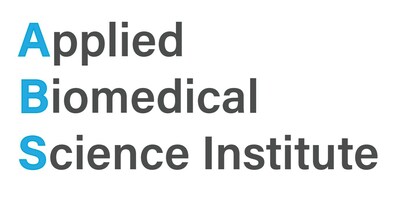A collaborative scientific team led by researchers at the Applied Biomedical Science Institute (ABS), Scripps Research, Kansas State University (K-State), University of Louisville, OmniAb, Inc., and Ligand Pharmaceuticals has discovered and validated a potential new class of therapeutic agent based on the unique antigen binding regions of cow antibodies.
|
|
| [20-September-2023] |
|
'Knob' antibody fragments (Picobodies™) derived from cows could define new therapeutic class SAN DIEGO, Sept. 20, 2023 /PRNewswire/ -- A collaborative scientific team led by researchers at the Applied Biomedical Science Institute (ABS), Scripps Research, Kansas State University (K-State), University of Louisville, OmniAb, Inc., and Ligand Pharmaceuticals has discovered and validated a potential new class of therapeutic agent based on the unique antigen binding regions of cow antibodies. In their paper published in the Proceedings of the National Academy of Sciences, "The smallest functional antibody fragment: ultralong CDR H3 antibody knob regions potently neutralize SARS-CoV-2", the team of researchers discovered cow antibodies with broad reactivity and high potency against several SARS-CoV-2 virus variants. They then developed the technology to produce only the coronavirus binding portion of the antibody, termed a 'knob' region, which is a tiny fragment of the large parent antibody. "At about 3% the size of the original antibody, cow knob regions represent the smallest known functional antibody fragment. They approach the size of some small molecule drugs and are three times smaller than camel antibody-derived 'nanobodies'. Knobs potentially have many biomedical uses, including as therapeutics and diagnostics," said Dr. Vaughn Smider, the senior author of the study and President of ABS. Potential advantages of such small antibody fragments include improved tissue penetration, clearance, and stability. While the current study reveals the utility of knobs in targeting coronavirus, their potential as a therapeutic class spans many therapeutic areas, including oncology and immunology. Future research applications of knobs include using them as targeting regions for nanoparticles, antibody drug conjugates or multispecific therapeutics. The antibodies and derivative knob regions were induced in cows by Dr. Waithaka Mwangi's laboratory at K-State, and discovered and evaluated at ABS by first author Ruiqi Huang and a team of scientists at ABS, then characterized for anti-viral properties by the laboratories of Drs. Kyeong-Ok Chang (K-State), Donghoon Chung (Louisville), John Teijaro (Scripps Research), and Dennis Burton (Scripps Research), and detailed structural characterization was accomplished at Scripps Research in the laboratories of Drs. Ian Wilson, Robyn Stanfield, Andrew Ward, Jane Dyson and Peter Wright. Industry collaborators led by Dr. William Harriman at OmniAb, Inc., and Dr. Jeff Allen at Pelican, a subsidiary of Ligand Pharmaceuticals collaborated in the analytical characterization and the manufacturing of the knobs. Minotaur Therapeutics (an ABS spin-out company) is developing commercial technologies related to knob region (picobody) discovery and development under a sublicense from OmniAb, Inc. See the original study at: Huang, R. et.al. The smallest functional antibody fragment: ultralong CDR H3 antibody knob regions potently neutralize SARS-CoV-2. Proc. Natl. Acad. Sci. 120, e2303455120 (2023) www.pnas.org/doi/10.1073/pnas.2303455120 About Picobodies Picobodies are isolated antibody "knob" domains comprised of cysteine-rich ultralong complementary determining region (CDR) H3 sequences of 30-40 amino acids, which have the potential to access challenging epitopes better than full size antibodies. About the Applied Biomedical Science Institute The Applied Biomedical Science Institute (ABS) is a 501(c)(3) non-profit organization taking a leading role in basic research and its rapid clinical translation by performing cutting-edge basic and translational research. With deep expertise in antibody genetics, biology, engineering, and discovery technologies, ABS promotes therapeutic and diagnostic translation through their own internal research, collaborations, or licensing activities. ABS also trains early-stage researchers in biomedical research through post-doctoral fellow and internship programs. For more information, please visit https://absinstitute.org/ About OmniAb® OmniAb's discovery platform provides pharmaceutical industry partners access to diverse antibody repertoires and high-throughput screening technologies to enable discovery of next-generation therapeutics. At the heart of the OmniAb platform is the Biological Intelligence™ (BI) of its proprietary transgenic animals, including OmniRat®, OmniChicken® and OmniMouse® that have been genetically modified to generate antibodies with human sequences to facilitate development of human therapeutic candidates. OmniFlic® (transgenic rat) and OmniClic® (transgenic chicken) address industry needs for bispecific antibody applications though a common light chain approach, and OmniTaur™ features unique structural attributes of cow antibodies for complex targets. OmniAb believes the OmniAb animals comprise the most diverse host systems available in the industry and they are optimally leveraged through computational antigen design and immunization methods, paired with high-throughput single B cell phenotypic screening and mining of next-generation sequencing datasets with custom algorithms to identify fully human antibodies with superior performance and developability characteristics. These proprietary technologies are joined with and leverage OmniDeep™, which is a suite of in silico tools for therapeutic discovery and optimization that are woven throughout OmniAb's various technologies and capabilities. Additionally, an established core competency focused on ion channels and transporters further differentiates OmniAb's technology and creates opportunities in many emerging target classes. OmniAb antibodies have been leveraged across modalities, including bispecific antibodies, antibody-drug conjugates and others. The OmniAb suite of technologies span from BI-powered repertoire generation to cutting-edge antibody discovery and optimization offering a highly efficient and customizable end-to-end solution for the growing discovery needs of the global pharmaceutical industry. For more information, please visit www.omniab.com. "Picobody" is a trademark of Crystal Bioscience, Inc., a subsidiary of OmniAb, Inc. Nathalie Nguyen
SOURCE Applied Biomedical Science Institute |





